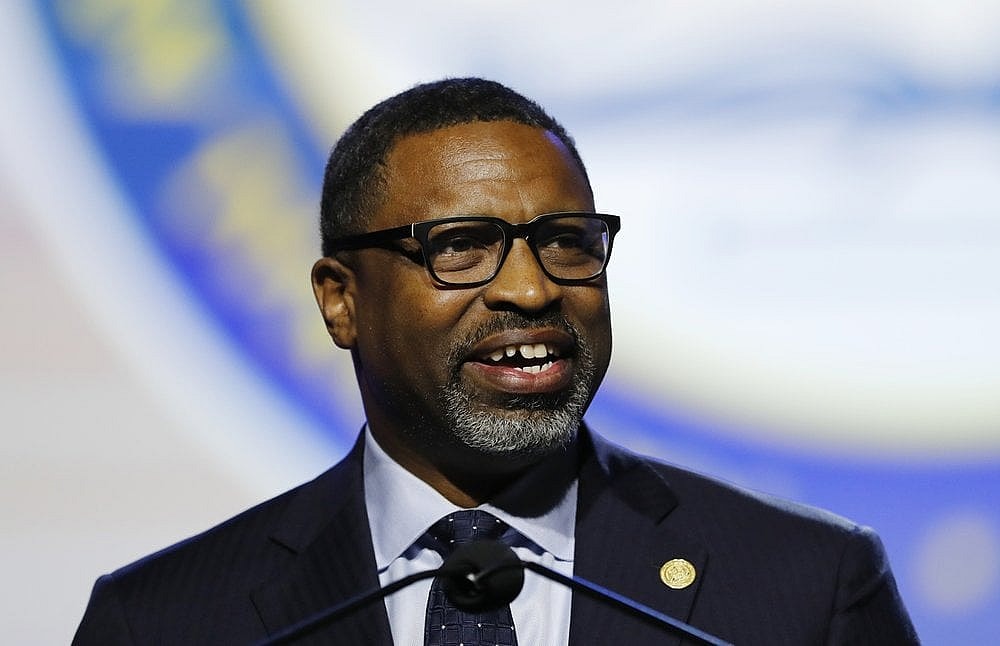“Fundamentally Republicans believe there are brown people who are coming into this nation who vote Democratic,” according to an anonymous high-ranking political operative. The anonymous source tells theGrio the focus is not on the border but the politics of it all.

The mindset he highlights leaves brown and Black people out of the equation who want a voice in national conversations on immigration.
Black immigrants, in particular, feel they are unheard and unseen in the immigration discourse. Among their demands amid a policy debate that often excludes them is a push to focus on extending Temporary Protection Status (TPS) for Haitians and Africans who are not allowed to cross the southern border and are stuck in Mexico.
Read More: VP Harris’s Thankless Task: Immigration reform is the graveyard of politics
NAACP President Derrick Johnson wants a fix to this problem by working with the Biden administration. He said it’s obtainable through ”a measured, reasonable approach that’s people centric and not profit centric.”

The NAACP is one of many advocacy groups that has been working on the issue of illegal immigration for years. President Johnson contends the organization wants to “make sure that Africans, wherever their country of origin may be, are treated with equitable respect, as if they were coming from a European country.”
“We have seen our immigration policy be peppered with the same racist approaches in all walks of life,” Johnson added.
New York Congressman and grandson of Jamaican immigrants, Mondaire Jones, offers another solution — “more accountability with respect to ICE and a complete reformation of that.”
“Black people are the first targets, the primary targets of white nationalist sympathizers,” Jones said as he explained his calls for changes to the U.S. Immigration and Customs Enforcement.

“We are a nation of immigrants,” Jones added. “I would not be here today as a 33 year old member of the United States Congress were it not for my grandfather who immigrated from Kingston, Jamaica, to this great country.”
Jones also recognizes there is an underlying racist history tied to the American immigration system.
“Historically, American presidents have given more favor to Cuban exiles than they have to exiles from Caribbean and African nations,” Jones explained. “The erasure of Black people from our conversation around a just and humane immigration system in the United States of America is part of a long history of anti-Blackness in this country.”
Read More: Rep. Mondaire Jones decries ICE ‘unlawfully’ deporting constituent to Haiti
Guerline Jozef, an advocate with the Haitian Bridge Alliance, said she works for the only Black organization at the U.S.-Mexico border. Jozef frustratedly admitted to feeling like she was “jumping up and down saying immigration is a Black issue.”

Haitians have already been in the United States on temporary protection status from the 2010 deadly earthquake, but a wave of them began to be ousted from the country under the Trump administration. The Haitian Bridge Alliance is fighting for President Biden to reinstate TPS for people still in the country and displaced from the earthquake.
Jozef pointed to another weighty issue – Haitians at the border have not been able to get in the United States since 2016 and they can’t go back to Haiti nor the countries they once inhabited.
She contends many of those at the border departed Chile and Brazil “after experiencing extreme racism.”
Another reason it’s too dangerous for the Haitian migrants to go back to Hait, she said, is because they would be returning to “political strife” on the island.
Have you subscribed to theGrio’s “Dear Culture” podcast? Download our newest episodes now!
TheGrio is now on Apple TV, Amazon Fire and Roku. Download theGrio.com today!

